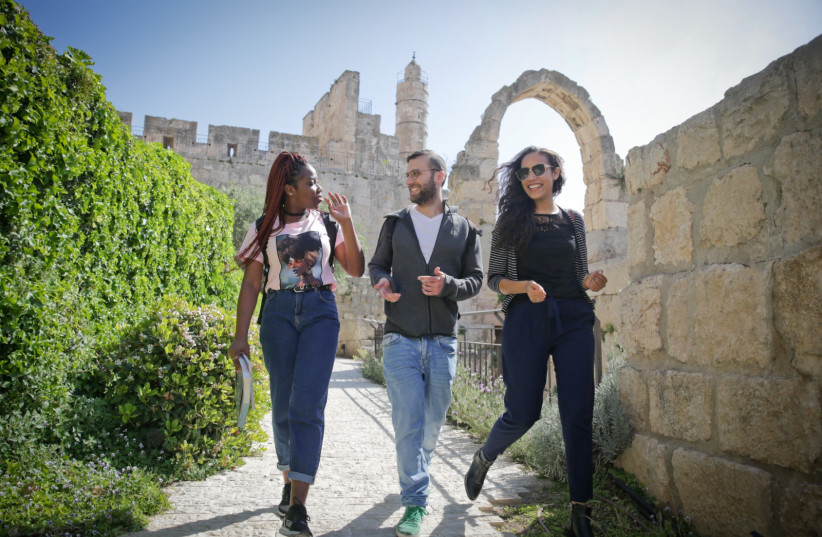Emerging from a 27-year civil war in 2002, Angola has spent the past two decades rebuilding the country, for a time becoming the continent’s fastest-growing economy, with one of the world’s fastest-growing GDPs. Now, with the focus on expanding its economic potential, Angola is looking to Israel, among others, for inspiration.
For more stories from The Media Line go to themedialine.org
Visiting Israel this week, Angola’s Minister of Higher Education, Science, Technology and Innovation, Dr. Maria do Rosario Braganca, took time to talk to The Media Line about her country’s relations to Israel and what each nation can learn from the other.
Reaching toward higher education
One focus of the minister’s trip was - unsurprisingly - higher education, and its role in the multi-faceted development of a young country. And on that, she says, Israel knows a thing or two.
“We have learned about the development of education in Israel, and one of the lessons is how education has advanced the goals of the country,” she says.

According to Braganca, Angola could also benefit from similar technological advances to the ones seen in Israel, which has earned the sobriquet “Startup Nation” for its extensively developed high-tech industry.
“This aspect of innovation, this technical innovation is very important in the cooperation with Israel,” the minister tells The Media Line.
“Innovation is a vast field and it doesn't restrict itself to the field of education. We have a plan in the government to develop startup companies and begin to grow incubators in the universities,” she adds.
In fact, Braganca says, “Angola needs all aspects of technology to improve our situation.”
She cites the developments that Israel has made in the world of agriculture, devising new methods of farming in an arid land where water is scarce.
“How come a country without rivers can develop agriculture?” she says, adding that this is “one of the important areas of cooperation” between the two countries.
“Angola is a very good, fertile country and we are diversifying our economy,” Braganca explains. “We're putting a lot of effort into developing agriculture.”
Ongoing agricultural cooperation
The minister says that there is ongoing cooperation between her country and other nations when it comes to agriculture, drawing on the example of Israeli company Mitrelli, which is hosting Braganca on her trip to Israel. Mitrelli operates in several African nations, helping them to develop vital infrastructure.
In Angola, she says, Mitrelli’s work is focused on irrigation as the country moves away from its dependence on oil, which in 2017 was responsible for more than 90 percent of its exports and almost two thirds of government revenue.
“Agriculture has a weightier role in improving the GDP,” as Angola ends its reliance on oil, Braganca says.
“Agriculture is [how] we intend to exchange our dependency on oil… not importing food and growing our own food in the country,” she says. “Oil ends and there is [major] instability in the market all the time: the price of the barrel fluctuates.”
According to the minister, this move to end Angola’s dependence on oil has also paved the way for what she calls “a revolution in the field of energy.”
The southern African country already has a large amount of solar panels and American companies are currently investing in alternative energy projects to “the amount of about $2 billion,” she says.
Furthermore, she says, Angola is now preparing to develop hydrogen sources of power within a few years.
Angola-Israel relations
So with such close cooperation between Israel and Angola, whose population of some 35 million people makes it the seventh-largest country on the continent, perhaps there is a place for the Middle Eastern nation in the African Union?
“The cooperation of Angola and Israel… is proof that Israel has a space in Africa, and my presence here in Israel is [also] proof of that,” Braganca says.
But, she qualifies with a smile as she prepares to leave for her next appointment, “it's not easy to come here; it's many hours of flight.”
